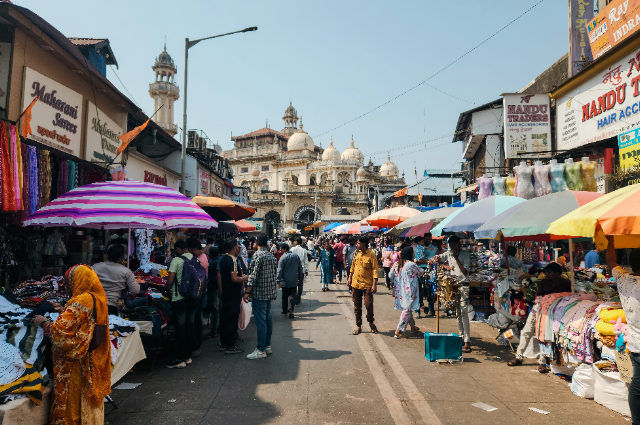
The World Next Door
Adventure once meant airports, mountains, and passport visas. Now it could mean a chai tapri during sunset, a bargain shop in the corner of a market, or a forgotten fort only 20 minutes away. To Gen Z, traveling is not about how far you go but how deeply you see.
The pandemic may have shut the borders, but it opened the eyes. Places we once overlooked - local bakeries, small-town cafes, regional art, and homestays- became our escape routes. And even today, in 2025, that shift has not faded. A generation that has been raised online has started seeking authenticity offline.
To the modern traveler, “local” is no longer dull, and that is real. And this reality is represented in vlogs and Instagram reels, which are the new currency of belonging.
The Gen Z Mindset – Why Familiar Feels Fresh
Gen Z does not travel for Instagram posts - they travel to build an identity. Unlike millennials, who chase bucket lists and hashtags, Gen Z seeks depth, connection, and story.
According to Booking.com’s 2024 Future of Travel report, over 73% of Gen Z travelers prefer exploring within 200 km of home over long international trips. The reason is simple: cost, climate anxiety, and curiosity. It’s not about escaping reality anymore — it’s about understanding it better.
An evening stroll through an old city alley or a monsoon drive through a local village is more of an adventure than a stay in a luxury resort. For this generation, adventure is no longer distance; it’s perspective.
According to Mumbai-based traveler and content creator Aarushi Jagtap, in one of her vlogs, “I used to dream of Paris cafes. Now I dream of little town ones where somebody still remembers your name.”
Digital Intimacy – Turning Local Spots into Global Aesthetics
The internet did not kill wanderlust - it localized it. The Gen Z influencers on platforms like Instagram and YouTube have begun glamorizing the everyday - the pao bhaji stalls and the neighbourhood bookstores and the small hillside accommodations have become aesthetic icons of escapism.
Such hashtags as #DesiGetaway and #WeekendNomad now rack up millions of views. These are not influencers in Santorini - they are in Nashik vineyards, Shillong cafes, or the Shaniwarwada lanes of Pune.
A 2023 report by Expedia called this trend “micro-tourism”, where short, low-cost cost emotionally rich local trips are replacing expensive vacations. This type of travel is environmentally friendly, community-based, and emotion-based as opposed to luxurious.
Gen Z has made a revolution of slowness by making local visual poetry, meaning they are able to see the extraordinary in what was viewed as an ordinary thing by older generations.
The Emotional Economy - Travelling to Belonging
To Gen Z, traveling is not a recreational activity, but therapy. On burnout, digital exhaustion, and continuous social clatter, it is refreshing to get away to nearby hills or stay in an Airbnb with its greenery.
They find simplicity in small towns, local food, chats, and tranquility that cannot be found in big cities. A 2024 Airbnb study reported that 68% of Gen Z travellers specified emotional reset as their most important purpose to travel, even more than sightseeing.
This emotional travelling economy has spawned local producers to chronicle these local escapes - of riding local trains and visiting coastal villages. It is not a gathering of destinations, but a gathering of tranquility.
The new definition of adventure is the comfort of the familiar, speaking your native language, having home-style food, and at the same time feeling new.
The Indian Lens – Heritage Over Hype
The centuries of stories, which can be retold, are there in India. Gen Z tourists make a heritage experience in the havelis of Rajasthan and the weaving villages of Tamil Nadu.
They want to touch, such as handcrafted, shabby, and real holidays, as opposed to the past generation of generations, who required glossy ones. Online travel agents, like NotOnMap and India Untravelled, are providing accommodation in rural homes and eco-villages, where the traveler can directly pay the local artisans and farmers.
This shift in attitude of commercial tourism to conscious exploration may be considered as a generational awakening. Going local, as it is, does not imply compromise, but correction to Gen Z Indians. It is the choice to act intentionally, but not according to performance.
Conclusion - The Future of Wanderlust
Adventure is no longer escape but is now turned back - to culture, to community, to self. The exotic is no longer elsewhere to Gen Z. The home is the one that you have never seen.
Undiscovered, more networked, with more young travellers swapping passports with backpacks and itineraries with instincts, wanderlust is assuming a different form.
The fact is, the best adventure does not necessarily need a visa, as a rule. It can be the chai-shop at the end of your block, the rain on your tin roof, or that which you have passed a hundred times and never looked at at all.
Reference
- Booking.com – Future Travel Preferences (Works) https://globalnews.booking.com
- Expedia Group – Traveler Insights Hub (Works) https://www.expediagroup.com
- Airbnb (2024). Travel Trends Report: Wellness & Slow Travel. https://news.airbnb.com
- Times of India (2023). Young Indians Choose Weekend Getaways Over Long Trips. https://timesofindia.indiatimes.com
- Condé Nast Traveller India (2023). Slow Travel Is Here to Stay. https://www.cntraveller.in
